Five Phrases to Avoid when Speaking
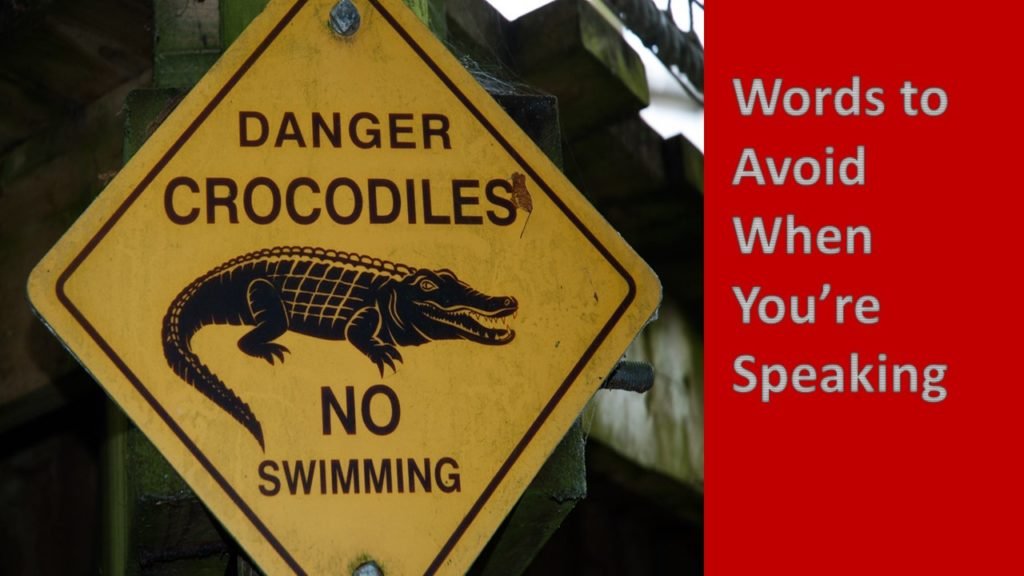
If you are a leader or hope to be a leader in your company, organization or community – your words matter. It matters what you say and were wise enough not to say.
Are you paying attention to your words and implications? Guess what? Your audience pays attention and draws inferences and conclusions from your words. Here are five phrases that are counterproductive to your message because they can confuse or distance your listeners. People might not consciously notice these flaws, but these phrases can cause unconscious dissonance in your message.
Mind your words because they matter. Be precise and prudent with your choice of words. Remove words that are wasted, distracting or annoying.
Worst Presentation Ever: Part Two: Clear?
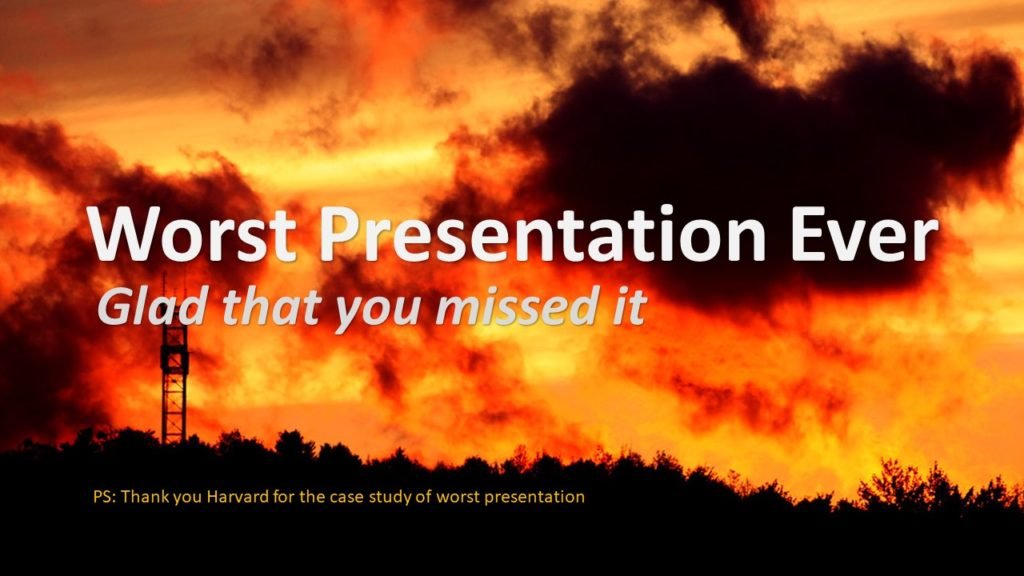
We Can’t Hear You. The next flaw was that we didn’t hear or understand many of his words. Why? He mumbled often. Mumbling is a sign of incomplete thoughts and the lack of editing your words for a clear message.
His voice often trailed off at the end of his sentences. That’s a common mistake made when a speaker is thinking about their next thought instead of finishing the current thought. He wore a lapel microphone and often turned his face away from the mic which meant that his voice faded. That’s a mistake made by novice speakers. He didn’t know how to use a microphone.
How to Tame a Hostile Audience: Lessons from Marc Antony
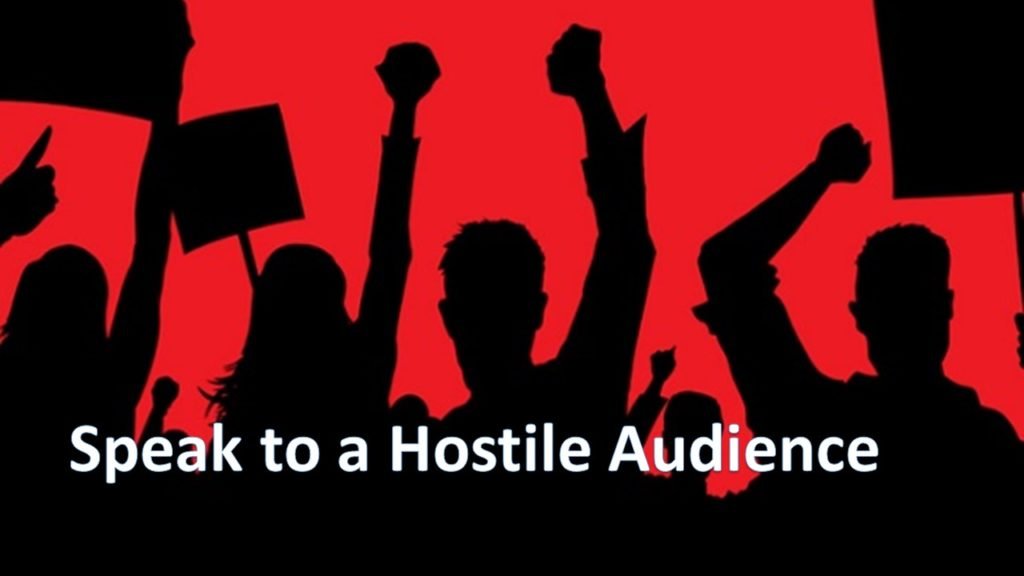
What can you do when facing a hostile audience? How can you speak so they listen? How might you connect with them so they see your side of the message? Those are difficult challenges that we can learn to face by learning from Shakespeare – in particular the speech that Marc Antony gave after the death of Julius Caesar.
Notice the shift in tone of the audience and the techniques used to persuade the audience to change their thinking. Let’s visit the scene and listen to the speech and the changing tide of the audience.
Are you a Results Driven Professional? Really?

A results driven professional with business and human resources mangement experience in a global environment. What mistakes do you see with this opening statement on their profile?
You might notice that it’s full of vague terms. There’s nothing specific. What has this person accomplished? Nothing that we can see. It feels cliché and nothing grabs your attention.
It appears that they have written their profile to attract “click bait”. Key words that they believe recruiters might be looking for.
Nothing specific, nothing about their accomplishments. Simple click bait or so they hope.
Do Not Sabotage Your Message with Filler Words
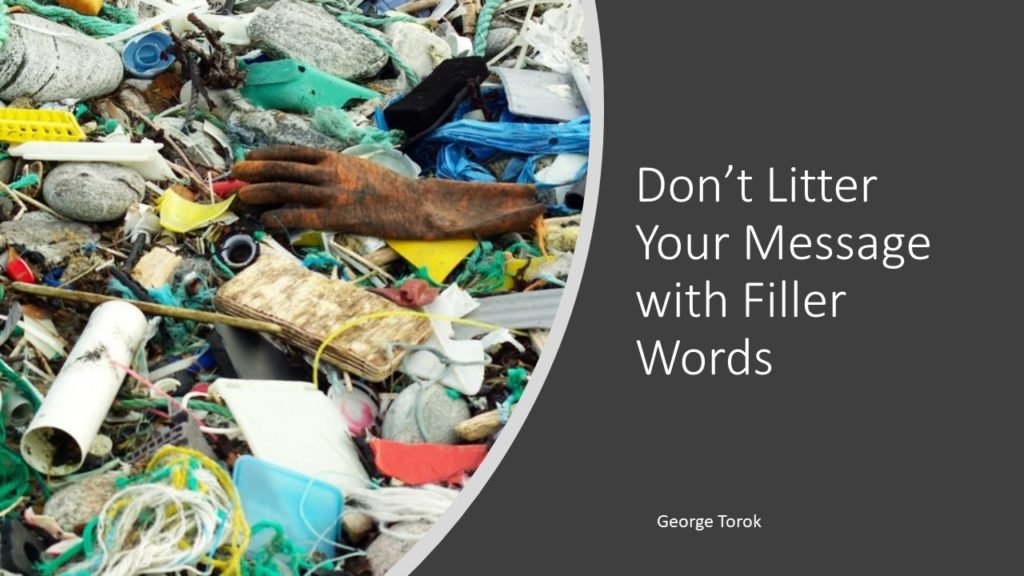
Reread that and see if you can pick out the filler words that steal energy from this speech. Imagine if you used these words in your presentation. What might that do to poison your intended message? Picking out the filler words is the first step to eliminate them. It starts with you becoming aware. Start listening to what you say when you speak…. ah, umm, like so, okay, right, you know…
Grab Attention when You Open Your Presentation with Contrast

Open Your Presentation with Contrast to grab Attention. Why open you presentation with contrast? To grab attention, to engage, to trigger thinking. To highlight the difference between two opposite choices and the resulting outcomes. To create curiosity, stimulate interest and insight intrigue.
CEO Speaks Nonsense? What did she really mean?
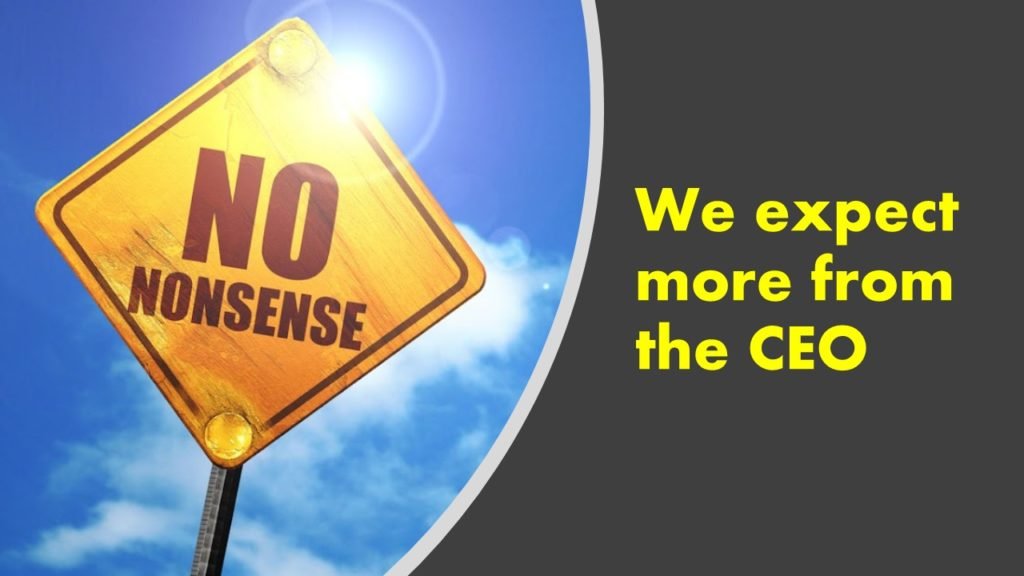
What happens when your words sabotage your message instead of conveying it? As CEO of your company your words are important. The messages that you deliver in public are evaluated by your investors, staff, suppliers, customers, competitors, marketplace and media. People will judge you and your company by your words. They might misjudge your message. That’s why it’s important to thoughtfully choose your words to convey your intended message.
Mind Your But

When you use the word “but” while pretending to agree – you send the message that you disagree.
Are You Unique?

Unique means – unlike any other – no comparison – not a copy – different from the rest – no equal – one of a kind. If you believe that you’re unique – would you sully the message by suggesting that you are very unique, pretty unique or really unique?
Your Words Determine Your Business Results

Language determines Discussion. Discussion determines Relationships. Relationships determine Business.
